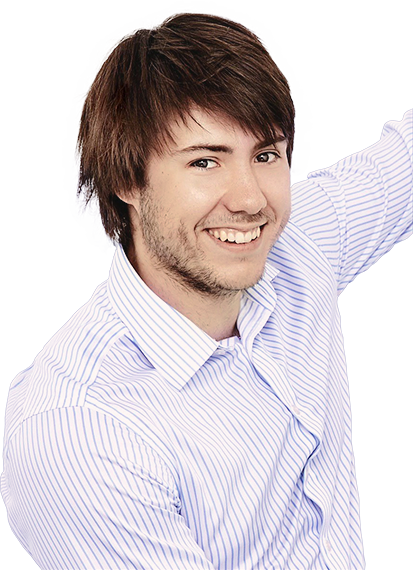7 Questions with Konstantin Stiskin of Finom
1. Please tell us a bit about yourself, both at work and leisure.
My name is Konstantin Stiskin, I have spent most of my career in the VC space in every available form – as an analyst, associate, as a director, partner, as an angel investor, advisor and co-founder. So it turned out that the area that attracted me most was FinTech, although I also have success stories in biotechnology and marketplaces. Besides, I play football, volleyball and chess.
2. Which product or service do you offer, and who are your competitors?
FINOM is an international innovation-driven startup, currently providing financial services in Germany and Italy. The headquarter is based in Amsterdam and the company can count on an international team of more than 70 people. A number that is constantly growing as business expands. FINOM was founded in 2019 and since then its mission has been to simplify the life of entrepreneurs and freelancers, who are the economic backbone of Europe. FINOM is a 100% digital B2B financial service, designed by entrepreneurs and freelancers for the benefit of entrepreneurs and freelancers.
FINOM is not a bank, but more: a true partner to our clients. Business finance should be as easy as using a smartphone, but quite often the business management process in Europe is far more complicated than it should be. Entrepreneurs spend lots of time on bureaucracy and still need the constant support of financial advisors and accountants to understand the real status of their own business.
FINOM is on the market to simplify things: bringing together advanced technologies to business management processes, allowing entrepreneurs and freelancers to spend time and resources only on what benefits their business and for their private life.
In fact, there are already strong players in the B2B market. To name a few: Qonto and Shine in France, Penta in Germany, Tide in the UK. We do not consider them as competitors: Together we can strengthen customer confidence in neo-banking and online financial services. This is an opportunity for everyone.
3. How did you get the business idea and take it from launch to the first customers?
Starting in 2018, I decided to reduce the percentage of investment time and increase the percentage of business time, as my focus shifted more and more to companies where I was personally involved.
I had five different business ideas which I started to explore, talking to experts to get feedback for my selection. Three of them were in FinTech, one in biotech and one in the automotive market.
At the end of the day, I decided on the idea that I was most excited about and which we call FINOM today. My excitement was the result of several factors. Supporting entrepreneurs in their daily life is a noble and very encouraging purpose of business life. It is also a huge and undersupplied market.
4. How have you financed your startup? Any lessons would you like to share from the fund-raising journey?
We have raised EUR 16.8 million in funds from value-added investors who support us. The first EUR 6.5 million were raised in a seed round, here is some advice I can give:
- Try to get some metrics early (literally – anything).
- Do field research on fundraising – pitch your company to everyone. Even before you are ready, it will clarify what to focus on.
- Invest your own money.
- Investors do live in the same media bubble – don’t try to set the agenda, use the existing agenda to your own benefit. But the agenda is not driven by anything you read in the media – it is something investors read in the decks of their portfolio companies. You could only figure it out when speaking with them, not just reading techcrunch.
- Investors are not your friends and won’t meet often for coffee, but they value information, so you could get their attention if you have another valuable information to share.
- They all want special terms and special rights, and that is ok. For them – not for you.
- When you propose investors to invest, you need to be sure that they feel they are getting a very good deal. Otherwise you would struggle with closing the deal.
5. Which are the key trends and opportunities in (European) financial services?
I am not an experts in trends, but I would say the numbers of freelancers will rise and all related services (like social security, payment, etc)
6. What’s on your bookshelf/ reading list?
I am a father of two little girls, so these are mainly children’s books. Probably not the reading recommendations you wanted to hear.
7. Your favorite place for a coffee and/ or a drink?
I love the Cappuccino in Coffemania, a coffee chain in Moscow. If you want to experience New York quality of food and service for the price of Bulgarian street food – go to Moscow!

